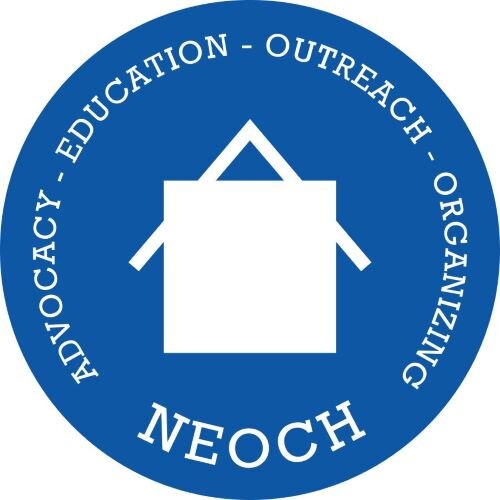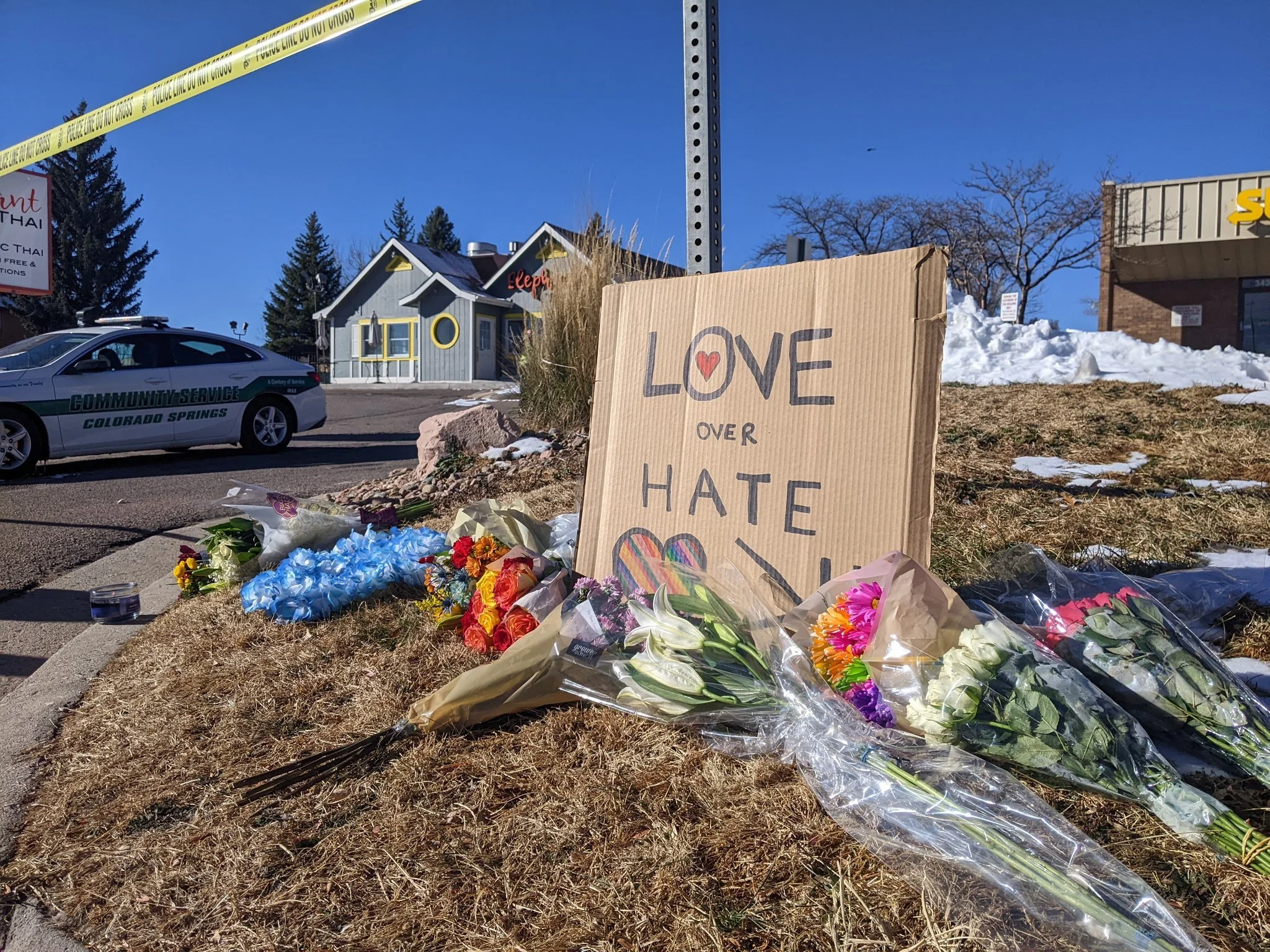Transgender Day of Remembrance in the Aftermath of the Club Q Tragedy
Photo Credit: Jason Connolloy
Written by NEOCH Communications Coordinator, Dmitri Ashakih
Transgender Day of Remembrance (TDOR) is a time for the LGBTQ community to honor friends and family members who have died due to anti-trans violence. This year, instead of spending TDOR peacefully grieving, members of the LGBTQ community listened in horror to the news that a gut-wrenching act of anti-LGBTQ violence was committed in Colorado Springs when a gunman opened fire on patrons of Club Q, a venue that served as an LGBTQ safe haven. Five people were killed and over 25 were injured.
This shooting has caused unimaginable suffering in Colorado Springs and a ripple effect of pain in the LGBTQ community at large. As a transgender person myself, moments like these fill me with grief for the victims and their loved ones, fear for the safety of myself and of other queer people, and an undeniable rage towards the hateful and soulless individuals who cannot allow us to have one day of peace without violence. They target us during the times that are the most precious and sacred, to commit atrocities against our people.
Violence against the LGBTQ community, specifically anti-trans violence, is something that Cleveland is painfully familiar. In 2018, more than 15% of transgender homicides in the United States happened in Cleveland and according to a 2020 Op-Ed by Eliana Turan, a trans Clevelander, writer, activist, scholar, and nonprofit professional, “Cleveland has more known references of transphobic killings than any other city in the US since record-keeping began...”
A majority of these victims are black trans women who face not only transphobia, but misogyny, homophobia, and racism. In 2021, Cleveland mourned the loss of Tierramarie Lewis, a black trans woman who was only 36 when she was murdered in an act of anti-trans hate. She was one of the 44 transgender and or gender nonconforming individuals killed in the United States, according to reporting by the HRC.
LGBTQ individuals are also overrepresented in the unhoused population, making them even more vulnerable to violence. In 2020, 17% of sexual minority adults reported they experienced lifetime homelessness, which is more than twice what was found in a general population study. Unhoused transgender individuals are then faced with harassment and discrimination within all levels of the current shelter systems. Tierramarie Lewis was trying to seek homeless services and after many instances of being misgendered and mistreated, she found herself with nowhere else to turn to.
We are failing the LGBTQ community in Cleveland and the United States at large. Systemic racism, mass incarceration, police brutality, anti-trans rhetoric in social and political spaces, a refusal to label transgender killings as hate crimes, misgendering by the police and press, and chronic underreporting of hate crimes, are contributing to the deaths of trans people.
But I refuse to be complacent, because the pain experienced by one trans person impacts all trans people. No one is free until we are all free.
For sources and further reading:
Gunman kills 5 at LGBTQ nightclub in Colorado Springs before patrons confront and stop him, police say
More Than 15% of This Year’s Transgender Homicides Have Happened in Cleveland
How Cleveland Became an Epicenter of Anti-trans Violence
Op-Ed: Cleveland is an Epicenter for America’s Trans Murder Crisis
Fatal Violence Against the Transgender and Gender Non-Conforming Community in 2021
HRC Mourns Tierramarie Lewis, Black Transgender Woman Killed in Cleveland

